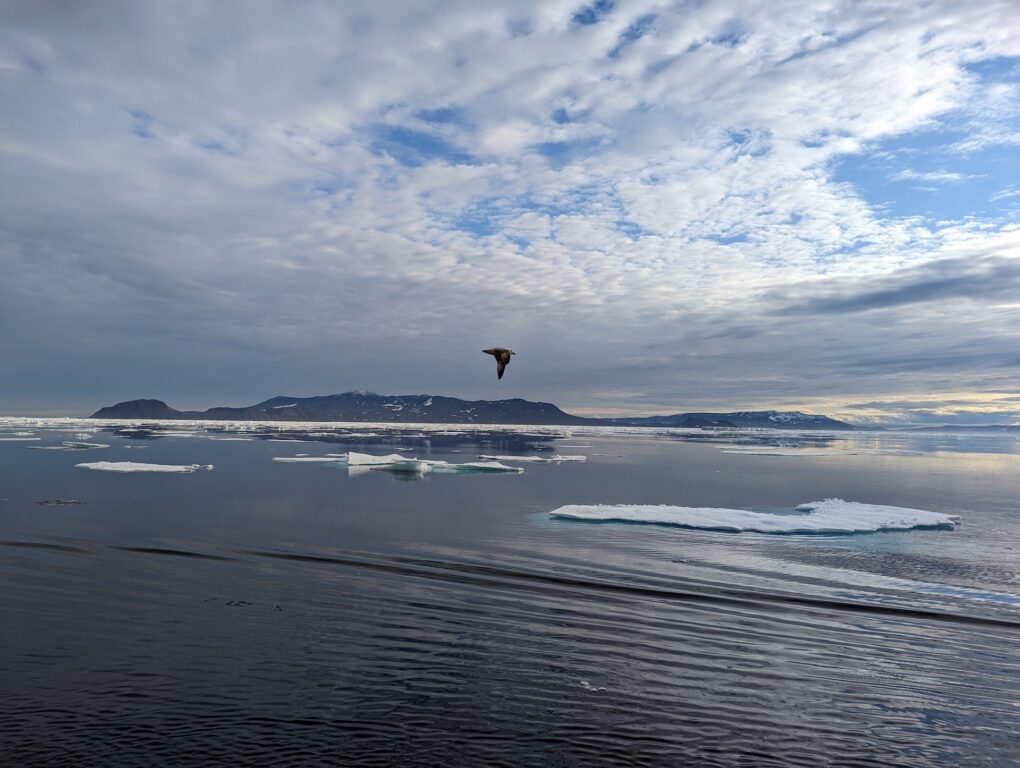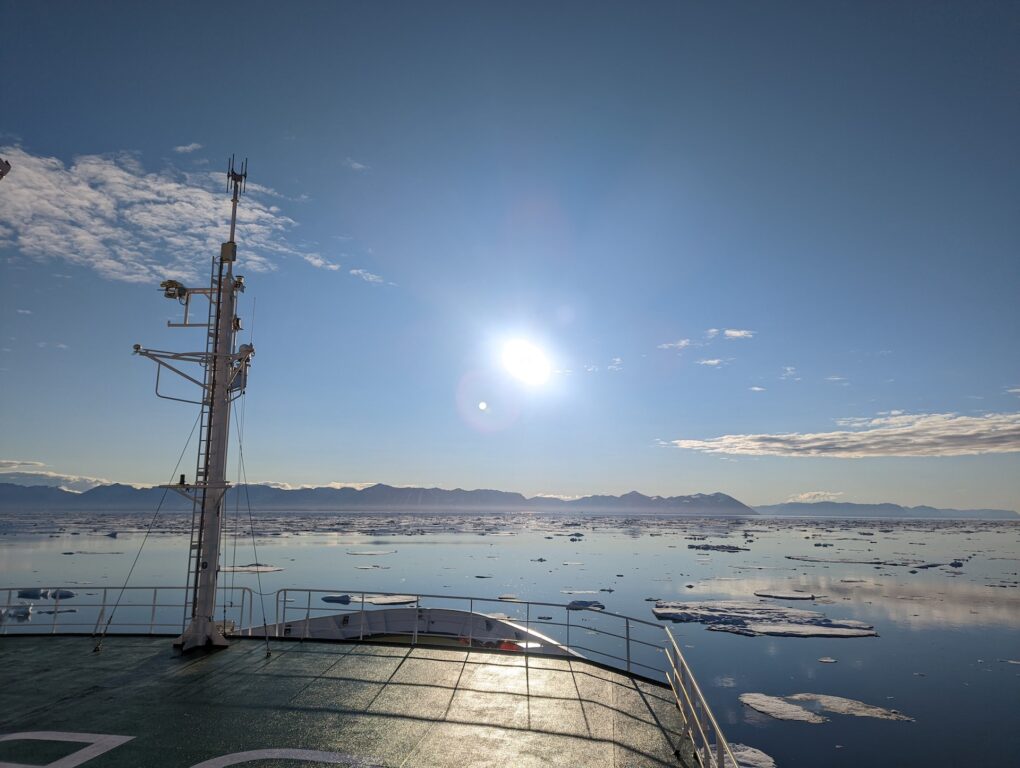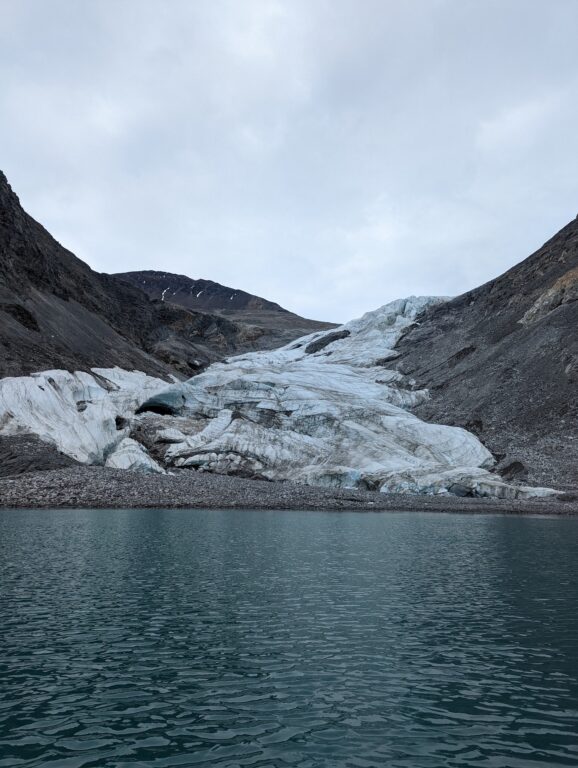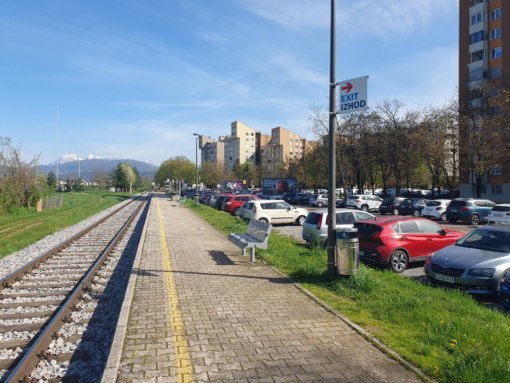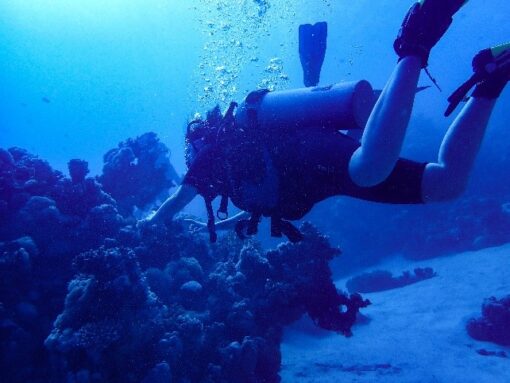Within the framework of the international project ECOTIP addressing tipping points in the ecology of the Arctic seas, three members of the working group on microbial oceanography from the University of Vienna were invited to join an expedition investigating major fjord systems in eastern Greenland. The expedition with the German research vessel Maria S. Merian started on 6 August 2022 in the harbour of Reykjavik (Iceland). The interdisciplinary group of researchers on board have expertise in biology, chemistry and geology of the ocean. For 23 days, they will conduct research along the coast of eastern Greenland and in fjord waters that are highly influenced by melt water from the glaciers and the sediment of nearby mountains.
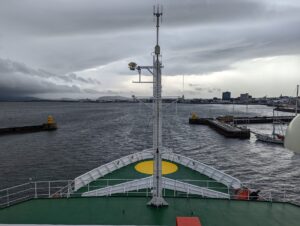
The passage to Greenland through the Denmark Strait went smoothly without severe winds, which can make an expedition by ship an unpleasant ride. However, due to ice at the entrances of some fjords we had to adapt the expedition route. Although the RV Maria S. Merian can move ice to the side, it cannot break a continuous ice sheet that is more than 30 cm thick.
Our team from the University of Vienna is interested in carbon cycling in the ocean, which is mediated by microbes and fungi. Most of the data we need cannot be analysed directly on board. To assess the activity, biomass and genetic potential of these microscopic organisms we thus transfer large amounts of seawater onto special filters to analyse it back in our lab. For that, we had to assemble a filtration line that allows us to process the seawater sample within a few hours. Luckily, the Merian is a very stable ship, so working on board is almost like at home. In rough waters, work at sea can quickly become very tiring because all the gear has to be attached firmly and walking with glassware and other lab equipment is a hassle.
We are currently on the second station in the northernmost fjord called Ardencaple Fjord. Yesterday we reached the glacier at the end of the fjord and some of us went sampling on an inflatable boat. The surrounding area is absolutely beautiful with its desert-like mountains grinded by past glaciers and ice sheets surrounding the ship.
In an interview with Rudolphina, the research magazine of the University of Vienna the researchers highlight the importance of this expedition and how ecosystems are in danger.
In this first week, we got to know each other very quickly because we all depend on each other for help. For the more experienced research ship scientists, the transition from life on land to life at sea was smoother than for the beginners, mostly because life on board follows different rules. The ship is a working platform and we have to adhere to the rhythm of sampling stations and the restricted personal life in between. For example, mealtimes are strict and occasionally the only time to meet other people for a chat. You have no regular leisure time as decisions for sampling are influenced by the weather conditions and work commences at any time around the clock if need be.
Pavla Debeljak & Thomas Reinthaler

